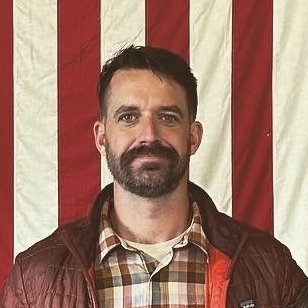Out of the Acts 29 Frying Pan and into the SBC Fire
I know firsthand what happens when a church network goes woke.
In 2011, I helped plant The Well Church in affiliation with the Acts 29 Network. This was right as the Young, Restless, and Reformed (YRR) movement was really taking off. The future looked bright for conservative evangelicalism in America.
But, over the next decade, what started as a happy band of brothers seeking to grow the church in the image of Christ slowly morphed into a marketing racket made in the image of Ed Stetzer. On issue after issue—race, gender roles, politics, and the COVID response—we watched in live time from our Colorado town as the Acts 29 Network moved away from doctrinal fidelity and towards worldly compromise.
Pastors were told they were racist for voting for Donald Trump. We were told that America was founded on white supremacy. Matt Chandler openly admitted to engaging in sinful ethnic partiality during a pastoral church search and was applauded for it. We watched as other faithful Acts 29 pastors, like Jon Needham, led his church out of the Network because he could not get “clarification from the leadership regarding pressing and important theological and cultural issues including gender, church leadership, critical race theory, and LGBTQ+ ideology.” And when we raised the alarm, we were told that all was well. Peace, peace, they cried—until there wasn’t.
In January of 2023, our church, which had given over a hundred thousand dollars of tithe money to the Network, was unilaterally removed from Acts 29 for simply raising legitimate concerns about its theological fidelity, cultural direction, financial transparency, and general management. There was no due process, no hearing, and no process of appeal. In just one 30-minute phone call, we were disfellowshipped without warning. I share about that entire experience alongside my co-pastor here.
Acts 29 Went Woke. Now It’s Going Broke.
Where does Acts 29 sit today? Exactly where they decided to stand over the last decade—in a place of compromise and decline. They’ve lost nearly half, if not more, of their American congregations in the last 15 months. Dozens of churches are leaving, many silently, but with some sounding the alarm. The Network’s reputation is in tatters, becoming a byword amongst church planters and pastors. It’s so bad that Baptist Press is trying to run cover for them (raising some serious questions about why the official publication outlet of the SBC is invested in trying to defend Acts 29).
Hoping to salvage what remains, they brought in John Piper, a faithful minister and grandfather of complementarianism in evangelicalism, to speak at their national conference. This is, however, the same conference where women taught male pastors about becoming more self-aware in leadership and how to raise up women teachers in their church.
When a fellowship of churches introduces worldly ideologies into their doctrine and practices, they die. The Bible clearly warns about this: “You were running well. Who hindered you from obeying the truth? This persuasion is not from him who calls you. A little leaven leavens the whole lump” (Galatians 5:7-9). Take a look at the membership of any mainline Protestant denomination over the last many decades, and the principle has played out over and over. God knew what He was doing when He inspired Paul to teach the early church that doctrinal compromise leads to death.
For those who have eyes to see, the trajectory of Acts 29 serves as a warning to all mission-minded conservative evangelicals in America, and particularly to Southern Baptists.
The Fields Are Ripe for the Harvest, But Only for the Bold
For me and my church, our time with Acts 29 is over. But my desire to link arms with like-minded churches for the sake of evangelism, discipleship, missions, and cultural engagement is as strong as it’s ever been. I believe that we live in a unique and challenging cultural moment, one in which the secular world, though increasingly hostile to the gospel and creation order, is a field ripe for the harvest.
For example, churches have the opportunity right now to speak clearly and courageously about very plain biblical matters related to God’s good design for men and women, the blessing of children, and the need for holiness. People are tired of being lied to. They’re not interested in being pandered to. No more groveling before the New York Times. No more seeking to be counted amongst the elites. No more compromise.
People today are not looking for churches that flatter them. That was a losing plan, anyway. They are looking for someone to tell them the truth. The truth about God, about mankind, about salvation in Jesus Christ, and about how to live life according to God’s Word.
What the lost world needs most is not a watered-down, social justice, egalitarian Jesus. They need to hear that Christ is Lord and King, and therefore, they must submit to Him in all things. A crazy and confused world needs the clear and undiluted Gospel. Churches that voluntarily work together in associations or denominations to advance this Gospel, the true Gospel, can still be used mightily by the Lord.
Faithful Christian institutions who refuse to compromise with the spirit of the age stand poised to help lead us out of the Negative World. I believe that the SBC, if it is revitalized and reformed according to God’s Word and does not fall into worldly compromise, can be one of those institutions.
So, after our church was unjustly kicked out of Acts 29, we decided to join the SBC and partner with the brothers who are fighting to ensure that Southern Baptists stay committed to the Bible and their Gospel mission for the 21st Century.
Why the SBC Is Worth Fighting For
The Southern Baptist Convention, consisting of over 47,000 churches, is the largest Protestant denomination in America by a mile. With the largest international missions sending agency in the world and six of the ten largest seminaries in our nation, there is no doubt that the SBC has an outsized impact on the American evangelical experience.
Given its sheer size and cultural influence, it is no wonder that secular forces are seeking to subvert it with unbiblical ideologies and attacking it with a variety of spurious accusations. It’s as if they reached into their big bag of “scary words” and threw whatever they could at the SBC just to see what would stick. And how have our leaders responded? They have been steered, just like Acts 29 was.
Russell Moore’s and J.D. Greear’s response to the “abuse crisis” accusations from the world is the perfect example. I know how Greear operates in the SBC because he was in Acts 29 before he became SBC President. The same rhetorical tactics that Greear deploys to dance around clear biblical teaching on Christian sexual ethics, politics, and complementarian theology—all in a misguided effort to win applause from the secular watching world—remain at play in Acts 29 to this day.
Thankfully, last year in New Orleans, thousands of churches rejected the “anti-fundamentalist and pro-egalitarian” vision of Greear and his kind by passing the Law Amendment. As an outsider looking in at the time, this excited me. It’s deeply encouraging to see faithful Christian pastors stand up against their liberalizing leadership and choose faithfulness over winsomeness.
This year, I plan to be in Indianapolis to help ratify the Law Amendment, the first step in a years-long effort to make the SBC biblically healthy once again.
I’ve heard it said that, “As goes the SBC, so goes America.” Of course, God doesn’t need the SBC or Acts 29, but there is more than a kernel of truth in that statement.
Not only does the future of the SBC matter to our nation, but it matters to me personally. My parents raised me in the nurture and admonition of the Lord. And for us, that meant I was raised in a Southern Baptist church.
I attended Mother’s Day Out, Vacation Bible School, went to Awanas, and watched Bible Man. If the church had a program available for me, my mom made sure that I was there. I watched my father lead our family to church every week. Our family sacrificed to help our church build a new building. Our family put our very own sweat into the effort, helping with various projects on the new property and even digging ditches under a hot summer sun in Texas. I was baptized in a Southern Baptist church in 1995. I attended the Wednesday night youth group, joined the church choir, and sat under biblical preaching week after week.
My father-in-law served on the board of deacons at his Southern Baptist church. My wife and I were married at her Southern Baptist church by her pastor (no dancing or drinking was allowed). My grandfather-in-law had his funeral at that church, where my wife sang while we mourned and celebrated his life.
This is our heritage. And it is the heritage of millions of Americans. Southern Baptists have fought these battles before. The Conservative Resurgence showed us how it is done. The drift into liberalism can and must be defeated. The messengers want it defeated. They told us so in 2022. For the glory of God and the good of our neighbors, the idol of feminism must be cast down by passing the Law Amendment.
Our nation is reeling with a profound distrust of institutions and leaders. Who can blame us? Lie after lie they proclaim from their platforms, telling us that women can become men, that abortion is healthcare, and that Bible-believing Christians are the biggest threat to our country right now. And not just our political leaders; religious leaders stand in their pulpits and tell us its okay to be racist against white Christians, that we should practice transgender “pronoun hospitality,” and that women can be pastors. They hide their radical agendas under the guise of some Christianized version of diversity, equity, and inclusion. But in the pews, the people cry out for truth, transparency, and clarity. Don’t Southern Baptists deserve as much?
Like I said, I’ve seen firsthand what happens when a Christian association goes woke. Acts 29 is a lost cause—but the SBC isn’t. There are many reasons for this, but one major reason is that the SBC polity allows local churches to vote on major issues in the Convention, to elect their leaders every year, and to hold those in charge accountable. Acts 29 was ruled by fiat. The SBC is a beautiful, messy, Baptist democracy.
Furthermore, I believe that the Lord is not finished with the SBC yet. Even more, I know that if the SBC repents of its worldly ways, returns to its first love of the undiluted Gospel, and embraces unapologetic theological fundamentalism coupled with uncompromising cultural engagement, the best days of the SBC are still in front of us.
The future of American evangelicalism hangs in the balance. Bold men of God are needed to stand their ground and speak the truth. Faithful Christian institutions are few and far between these days, and the SBC just might be the most important Christian denomination in the world right now. The progressive Left certainly thinks so, which is why they want to destroy it.
I want to help save it. With this much at stake, why wouldn’t I join?
Wouldn’t you?
-

Chase Davis is the Lead Pastor of Ministry of The Well Church in Boulder, CO. A two-time graduate of Denver Seminary (M.Div., Th.M.), Chase is also a Ph.D. candidate at the Free University Amsterdam studying historical theology. He is the author of Trinitarian Formation: A Theology of Discipleship in Light of the Father, Son, and Spirit and hosts the Full Proof Theology podcast.

